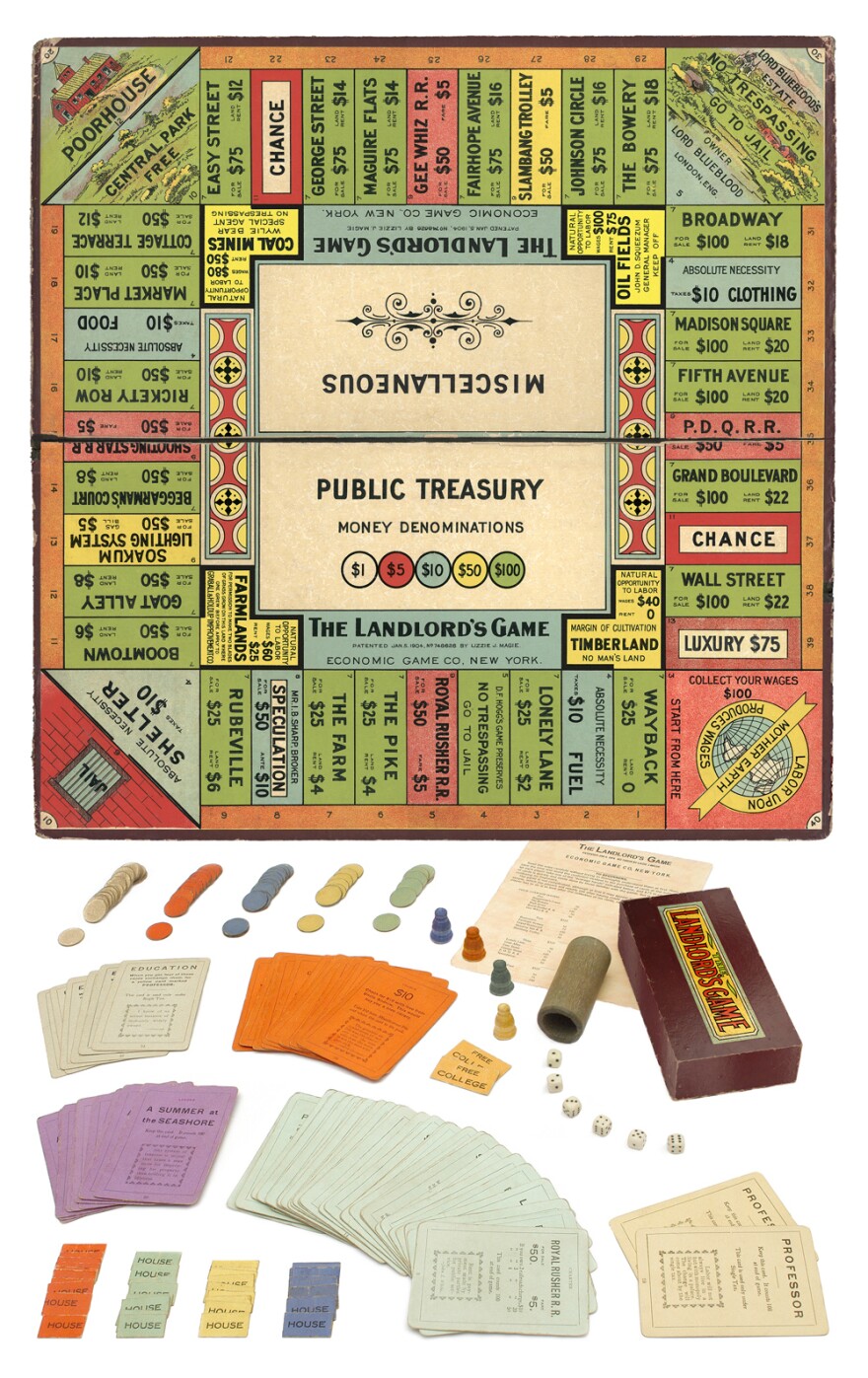Listen to Throughline on Apple Podcasts and Spotify.
Monopoly has been one of the best-selling board games in the United States for nearly a century now. In fact, sales actually went up during the pandemic – an unlikely time for a game that champions wealth and landlords to thrive. And sure, maybe it is just a board game, a way to pass the time, but writer Mary Pilon, the author of The Monopolists: Obsession, Fury, and the Scandal Behind the World's Favorite Board Game, says Monopoly is much more than that. Its history challenges us to consider the aspirations, desires, and myths we, as a country, continue to hold onto. Depending on how you look at it, she says, "Monopoly is the American dream in a board game – or a nightmare."
"We have to look at board games as cultural artifacts, the same way we look at songs, books, movies–they represent the time periods that they're in" -Mary Pilon
For a long time, the supposed origin story appeared right at the top of the game's rulebook and went something like this: A man named Charles Darrow was down on his luck, unemployed amid the Great Depression and looking for something to pass the time. In 1934, he came up with Monopoly, sold it to Parker Brothers, and became a millionaire. A classic rags to riches American story. But what really happened is a lot more complicated, and a lot less rosy.
The game was originally known as The Landlord's Game, and was patented by a woman named Lizzie Magie in 1904. At that time, fewer than one percent of patents in the United States were granted to women, so this was a pretty big deal. She created the Landlord's Game as a way to teach people about the nature of monopolies and land ownership, and to show the fundamental inequalities of both. She was in a world where robber barons had come to dominate every sector of the economy, from oil to railroads, and their wealth depended on the ownership of land. Her version of the game became popular among left-wing America, being played by progressives at universities, social reformers, and even Upton Sinclair himself.

Charles Darrow came across it while having dinner at a friend's house. Jobless and short on money, he took Lizzie's idea and decided to pitch it as his own to Parker Brothers. It was the Great Depression and board games were having a moment. People couldn't afford to do much, but a board game could entertain your family for hours and hours. Parker Brothers released Monopoly in 1934, selling a story along with it. The story of how Darrow, with not a cent to his name, dreamed up this board game and rescued his family from poverty. No mention of Lizzie Magie to be found.
To learn more about this fascinating history, be sure to check out this episode from Throughline.
This Throughline episode was adapted for the web by Rund Abdelfatah, Taylor Ash and Emily Kinslow. You can follow us on Twitter at @throughlineNPR!
Copyright 2023 NPR. To see more, visit https://www.npr.org.








